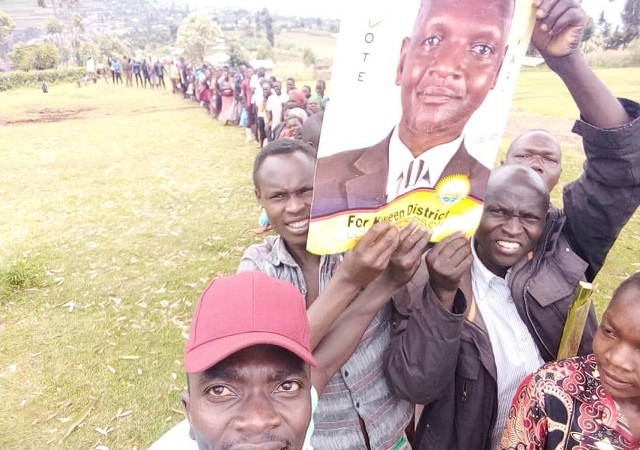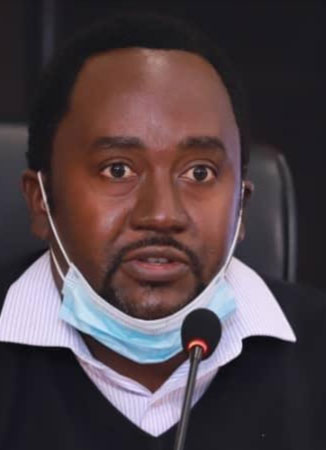What to pick and leave, from the NRM party primary elections
by The Independent

COMMENT | Crispin Kaheru | The NRM party primary elections may have come off as vibrant on a positive note, but they also depicted a game of money, power, guns and impunity – in some cases. There were some disturbing scenes of violence in as much as there were portions of tranquility in other places.
The idea of voting by lining up may have been conceived with good intentions but it certainly had its own challenges; it was difficult to regulate or distinguish duly registered party voters from non-registered party members.
The primaries generally gave a pulse reading of what Ugandans are yearning for. They desire change! Ugandans want leadership that’s capable of adapting to the change they need. More than 30% of the (conservative) old-timers who had been in elective politics for over a decade and a half were shown the political exit. It is clear, young turks will carry the party’ flags. It is very likely that, come the general elections, the attrition rate (for Parliamentary seats) will be higher than 2016’s 60%. To say the very least, the country is experiencing the ‘inevitability of change’. A different generation of leaders could slowly pick-up, amidst the circumstances.
Out of all the brouhaha, one thing stood out from the NRM primaries; the party’s survival can only depend on how much and quickly it renews itself. Biology teaches us that, if an organism cannot reproduce itself, its population will diminish and ultimately disappear.
Most of the (good or bad) stuff witnessed in the NRM primaries will most likely be seen (at a different scale) in the next couple of months – when the running gears of the general elections are engaged. This is not conjecture, it is reality. The individuals who ran in the NRM primaries will most likely be in the fray of the general election – either as party flag bearers or as independent candidates. It is difficult to expect them to behave differently.
Soon, when the political pool has a blend of all shades, it will be cutthroat competition. Expect more of the same. Unless the NRM punishes and is seen to genuinely punish those that have orchestrated electoral malpractices, the general election will most probably be prone to similar scenes of mistrust, violence, voter bribery, vote theft, hate-speech, ethnicised speech and all manner of manipulative practices. If the NRM is committed to any improvements in the electoral environment over the next couple of months, then it must crack the whip on its misbehaving members, now. The same advice goes to the rest of the political parties, formations and individuals with intentions of running for political office.
Towards the general election, it remains to be seen if indeed the Covid-19 health and safety guidelines will be adhered to, when the tempo rises. The last few weeks showed how some ‘leaders’ disregarded the very rules they espouse for citizens. They told the citizens not to gather, but every so often, they would assemble the wanachito ask them for one political favour or the other. You cannot have a law that restricts some people while at the same time allowing others to carry out their activities in total disregard of the regulations by the Ministry of Health on Covid-19.
One of the key animating features of basic democracy is the rule of law, yet it is one of the most difficult to establish. It exists when no one is above the law. The law should be upheld independently of who happens to be in power or who made it. Politics in the context of Covid-19 has simply put the rule of law under a serious test. Scenes of gatherings have been quite rampant. In much of the countryside, facemasks are alien. The concept of social distancing vanishes at the call of elections. Hygienic practices such as regular hand washing seem to have melted into thin air. More notably though, not many people actually seem to know what is really contained in the much sung ‘Standard Operating Procedures’. Those who know should teach those who don’t know.
The NRM primaries have unmasked the potential risks in the general elections. Stakeholders should now use the checklist of what went wrong and what worked in the party primaries to plan ahead. Under the circumstances, a reasonable general election will largely depend on the extent to which gaps in the party primaries are genuinely fixed, now!
****

Crispin Kaheru is a Ugandan Socio-Political Commentator
Twitter: @ckaheru
Share on: WhatsApp